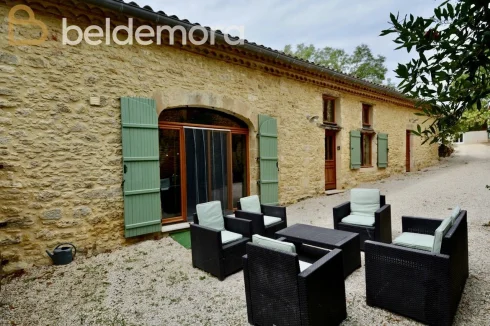New Concessions for Auto-Entrepreneurs
Tuesday 02 February 2010
The government have introduced new concessions in the rules applicable to auto-entrepreneur business status in France.
An ‘auto-entrepreneur’ is a form of micro-entreprise, with particular rules concerning liability to social security contributions and business registration.
Under this business status, social security contributions are payable as a percentage of your gross sales; if you do not realise any sales in an accounting period, then no social security contributions are payable.
So the great innovation here is that unlike other forms of business status, no minimal social charges are payable: no sales = no social security contributions.
Although you may realise no sales, you still retain your social security rights, notably affiliation to the French health system.
Hitherto, these rights continued to be available for a year, a maximum period that the government has now increased to three years.
More precisely, in the case of no sales, access to the health and social security system continues to be available for up to 36 months (which may not be continuous) or 12 consecutive quarters.
In the event that there are no sales over this period then, not only is the right to social security benefits removed, but so is entitlement to auto-entrepreneur business status.
The lack of sales amongst auto-entrepreneurs is surprisingly widespread. Last year around 300,000 auto-entrepreneurs set up shop, but according to government figures, 60% of them recorded no sales! The average level of sales per quarter was €4000.
The lack of sales does suggest that many were finding difficulty in getting the business going, or that the status was being used as a complementary activity to existing employment, or to support a retirement pension, or higher education studies.
On the darker side, there is also evidence that some employers are inveigling some employees to convert to auto-entrepreneur status, often under the threat of redundancy. There are huge financial benefits for the employer in doing so, for they then cease to be responsible for employee social security contributions, amounting to 40% or more of the basic salary.
For the employee, the benefits are less evident, for although they become 'their own boss', they lose their right to unemployment benefit, not automatically available to the self-employed.
However, on the evidence of your e mails, it does seem that the auto-entrepreneur system is working for many of you. Tom Dryden, who lives in the Limousin, wrote to us recently to say, 'I arrived in France in January 2008, and last year I signed up for the auto-entrepreneur system, offering general DIY services to other expats in the area.
My turnover in the year was €4370, on which I have paid several hundred Euros in social security contributions. However, late last year I contracted a serious illness, since when I have had two major operations. Although I am still unable to work, I remain fully covered for health care.'
Easier Access for 'Professions Liberales'
In a further relaxation of the rules, those currently involved in a business activity as a self-employed professional (profession libérale) affiliated to the retirement insurance fund 'CIPAV' can now opt for auto-entrepreneur business status.
There are around 150 professional business activities affected by this rule, embracing a wide range of professions, such as architect, security guard, financial advisor, designer, osteopath, music teacher and cinema technician.
The new rule grants access to auto-entrepreneur for both new and existing business professionals in CIPAV.
An existing business has been granted until 28th February 2010 to change their business status for this year.
If you do so, you will be pay 18.3% of your turnover in social security contributions, which you can elect to pay monthly or quarterly.
In all cases, auto-entrepreneurs cannot exceed the maximum annual turnover levels applicable for their type of business, and they are also required to comply with any minimum qualifications or experience that is necessary in order to persue the activity.
Multiple Business Activities
In a further clarification of the regulations on auto-entrepreneur business status, the social security authorities have been giving consideration to the social security obligations of those auto-entrepreneurs who run more than one business activity.
As the percentage rate of social security contributions depends on the type of business activity you pursue, the question arises as to whether one or more rates apply for those with multiple business activities that do not have the same contribution rate.
In a rare instance of where an administratively simple and clear procedure has been adopted by the authorities, it has been decided that only one rate should apply, that being the rate that applies to the principal business activity.
Accordingly, if for instance, you run an artisanal business and you have a separate but secondary commercial business, you will pay social security contributions on both activities at the rate applicable for artisans.
This rule does not apply if the secondary activity is one of the professions libérales, in which case each business is considered separately.
Clearly, if you run two or more businesses within the same business category, then a single rate will apply on the total turnover of the businesses.
Thank you for showing an interest in our News section.
Our News section is no longer being published although our catalogue of articles remains in place.
If you found our News useful, please have a look at France Insider, our subscription based News service with in-depth analysis, or our authoritative Guides to France.
If you require advice and assistance with the purchase of French property and moving to France, then take a look at the France Insider Property Clinic.





